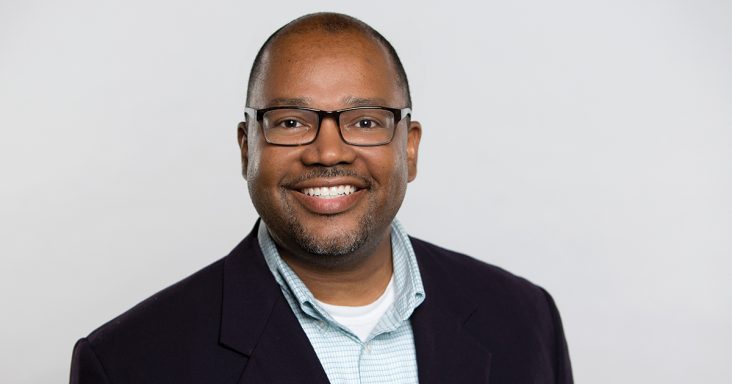Walton group wants Strategy 2025 to collaborate on Delta turnaround
by June 9, 2022 9:25 pm 1,796 views

Kim Davis.
There was a time when Arkansas’ economic center was in the rich Delta soils. The Natural State’s economy was fueled by the cotton, corn and other crops harvested each fall. Schools, churches, civic government and the rest of the state’s social fabric revolved around planting and harvesting cycles on Delta farms.
During the 1940s things started to change. A wave of mechanization led to fewer farm jobs, and by the 1950s many former or would-be laborers had moved to work for better pay in the Midwest. The depopulation of the Delta had drastic ramifications that went beyond impacting the agriculture sector.
It’s led to some of the worst poverty in the country. Educational and entrepreneurial opportunities are limited and it impacts other areas such as health outcomes and crime.
An effort to thwart this trend is about to be advanced by the Walton Family Foundation (WFF). Kim Davis, a senior advisor for the Home Region Program, leads the foundation’s work in the Arkansas/Mississippi Delta. Davis, with support from the board, believes the new collaborative effort will help lift the development and prosperity of Delta communities.
“Every community is different, and so are the challenges they face — which is why following local leadership and vision is critical,” said Annie Proietti, WFF board chair. “We recognize that building a vibrant, equitable Delta won’t happen by going it alone. Realizing this vision means joining with partners and supporting one another toward shared goals.”
The initiative will focus on three key areas: Education and youth engagement, economic asset building for individuals and families, and high-impact coalition building. The plan is part of the foundation’s five-year commitment, Strategy 2025, to tackle tough social and environmental problems with urgency and a long-term approach to expand access to opportunity.
Jefferson and Phillips counties in Arkansas and Coahoma County in Mississippi will be the target areas for Strategy 2025. The foundation had already worked on development programs in Phillips and Coahoma counties and that familiarity with local civic and business leaders made it a natural fit to focus on those counties, Davis said. Jefferson County was added because it has a lot of the same demographic and socio-economic issues and the University of Arkansas at Pine Bluff was a willing partner.
One area where the initiative will focus is the development of teachers in the region. Increasing the number of certified teachers and their pay will be top priorities, he added. After-school programs for students will also be developed.
“The teacher is at the center of learning. Better teachers lead to better outcomes for students,” Davis said.
The foundation will help lay the groundwork by investing in the educator workforce, unlocking college and career pathways and improving access to educational options. With an emphasis on closing the region’s inequities, the WFF will also look for ways to provide residents with resources needed to build financial security through economic asset building and boost upward mobility by offering workforce development and career training to strengthen small businesses, according to the foundation.
Creating new career pathways will be vital for retaining population in these communities, Davis said. When students graduate from high school, they should be focused on going to college or acquiring skills in high paying trades such as plumbing, HVAC, and electrical among others.
“No high school student should cross the stage and not have a plan,” he said.
Part of the focus will be to build coalitions of local, regional and national partners to develop the next generation of community leaders and achieve greater equity and opportunity in the area. Abe Hudson has been hired as a program officer focused on the Delta.
Hudson lives in Clarksdale, Miss., and will spend time facilitating new regional partnerships. Prior to joining the foundation, he was a Mississippi state representative and worked with Delta State University as a visiting professor in the College of Business and Aviation. He also served as a program director at the Debt Education for Business Transformation and Sustainability (DEBTS) Program.
In addition to improving educational standards in the three counties, secondary efforts will be made to improve the region’s economy through other means, Davis said. Financial literacy such as teaching residents the importance of saving money, improving credit scores, owning land and building houses will be emphasized.
Another part of economic asset building will be the development of entrepreneurship in the three counties, Davis said. Communities thrive when they have and support vibrant small businesses. Small businesses owners are tied to the communities they serve and it helps the local economy grow. These businesses also provide jobs, Davis said.
The pandemic proved people can work remotely and businesses can also function remotely. It means certain entrepreneurs can live in the Delta and maintain business interests in other parts of the state, country or even world, he said.
“We think there are tremendous opportunities,” Davis said.
Developing leadership and forward thinking among civic and business communities also will be a goal, he added.
How much the Foundation will invest in terms of dollars is impossible to calculate, Davis said. Much will depend on partnerships developed with local civic and privately-owned groups. They’ve already had conversations with at least 75 potential decision makers or leaders in these areas.
The foundation will spend the rest of 2022 developing relationships with local individuals and organizations while formulating a plan of action. The goal is to identify achievable goals and have realistic expectations.
“We can’t do it all. … We will be looking for partners in this,” he added. “This will be community led.”
